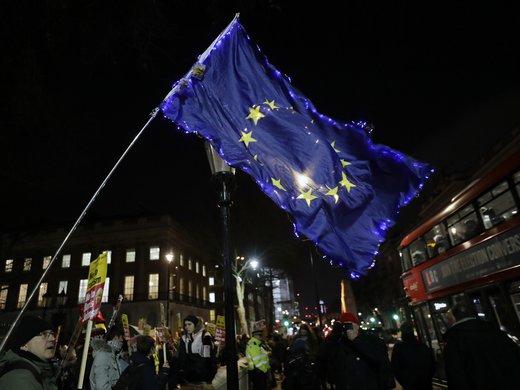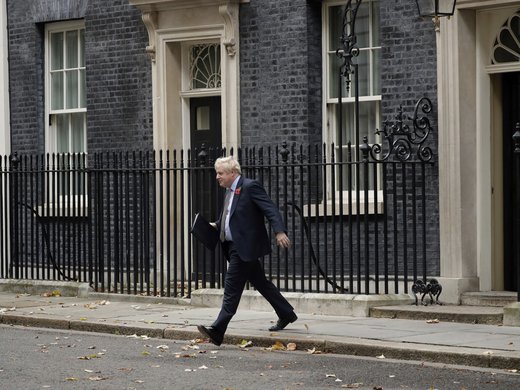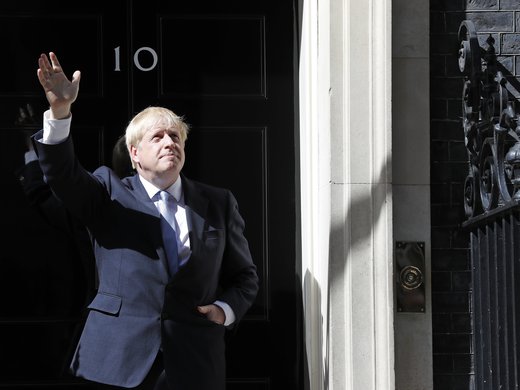As the Brexit debate rages on, the two sides agree on one thing: the enormous economic, political and social implications of the vote that will weigh on the future of the UK. Former Prime Minister Tony Blair has called the vote “the most important decision for Britain since 1945” and warned about a “long, agonizing process of disengagement” that would result from an Out vote, with “seismic” economic implications. The Leave campaign also regards the vote as a defining moment in the UK’s relationship with Europe: they view it as a once-in-a-lifetime opportunity to escape “supra national authority” and obtain “a better deal for the UK”. The battle lines are drawn.
The challenged faced by the Leave campaign is that it is long on words and short on specifics. While several independent observers have tried to quantify the impact of Brexit on the UK economy and financial markets, the Leave campaign just offer a leap into the unknown. Brexit would entail a long period of uncertainty that would adversely affect investment and growth. A decision to exit would be followed by protracted negotiations to agree on the terms of UK withdrawal, including access to the single European market for goods, services, labor and capital. Losing duty-free access to the EU market would adversely affect output, jobs and economic efficiency. Estimates of the output loss range from 1% to 10% of the UK’s current GDP, depending on the UK’s future trade and financial relationship with Europe and the rest of the world. In his recent visit to the UK, US President Obama said that if the UK left the EU, it would go “to the back of the queue” in seeking a trade deal with Washington.
The stakes are high, as the EU accounts for half of UK trade. The IMF has recently warned that the UK’s record-high current account deficit and consequent reliance on external financing exacerbates the Brexit risks (http://www.imf.org/external/np/ms/2016/051316.htm). An adverse market reaction would depress asset prices and raise interest rates, further contributing to output contraction. This would lead to losses in tax revenue that could easily offset the gain from eliminating the UK’s net contribution to the EU budget. Also at risk would be London’s status as Europe’s financial capital and global financial center. Currently all the major commercial and investment banks have their European headquarters in London – a status the UK is unlikely to retain if it loses its “passporting” rights that enable UK-based firms to provide financial services throughout Europe. Although the consequences of Brexit will fall mainly on the UK, G7 leaders warned from Japan last week that an Out vote would seriously threaten the world economy due to spillover risks to European and global markets.
The Leave campaigners do not address core objections nor do they offer a roadmap for Britain’s future outside the EU. In the words of former London mayor Boris Johnson, leading Leave campaigner, on the risks to the economy and the City of London: “though those risks cannot be entirely dismissed, I think they are likely to be exaggerated” (http://www.telegraph.co.uk/opinion/2016/03/16/boris-johnson-exclusive-there-is-only-one-way-to-get-the-change/). The Leave camp has proposed various countries as possible models for a post-Brexit trade relationship with the EU: Canada, Norway, Switzerland, even a developing country like Albania! But none of these models would offer the open borders and free trade that the EU now offers. The Eurosceptics of the Leave campaign stress the loss of sovereignty and the perceived erosion of democracy that EU membership entails. They view the referendum as a rare opportunity to vote for real change in Britain’s relations with Europe and avoid membership in “an ever closer union”. But the UK does not need to leave to avoid finding itself in an ever closer union: it already has won significant concessions from the EU, including a permanent opt-out from the Schengen passport-free area and from euro adoption, safeguards to protect the euro “outs” from the euro “ins”, a budget rebate, as well as firm commitments on EU deregulation and competition. Most of these concessions pre-dated Prime Minister Cameron’s renegotiation of Britain’s place in the EU, which culminated in an agreement reached at the EU Summit in February 2016. While the agreement was widely seen as marginal, it nevertheless permitted Mr. Cameron to campaign forcefully for the Remain side, arguing that the UK will be stronger and better off in a reformed EU.
A vote to Leave the EU also carries the risk of renewed tensions between England and Scotland. The referendum for Scottish independence in 2014 was partly based on the argument that England would no longer be able to impose decisions on Scotland. An English-led withdrawal of the UK from the EU could trigger another Scottish referendum calling for independence from the UK so that Scotland can remain in the EU. The British government would then need to simultaneously negotiate the UK’s exit from the EU (Brexit) and Scotland’s withdrawal from the UK. The Leave side dismisses these concerns in a hand-waiving fashion, claiming that the Scots are likely to vote on roughly the same lines as the English. Such optimism is not borne out by the opinion polls: there is much stronger support for the Remain side in Scotland (75%) versus England ( less than 50%), so the probability of another Scottish independence referendum is pretty high.
Overall, Brexit looks less like heaven and more like hell. Young voters in the UK get it: Three quarters of voters aged 18-24 want to remain in the EU, while older voters prefer to leave. Young people value the EU for the freedom it offers them to study, work, live, travel and meet other young people throughout Europe without any restrictions. They have a point.


